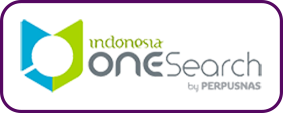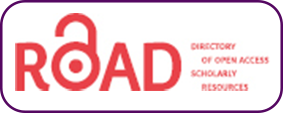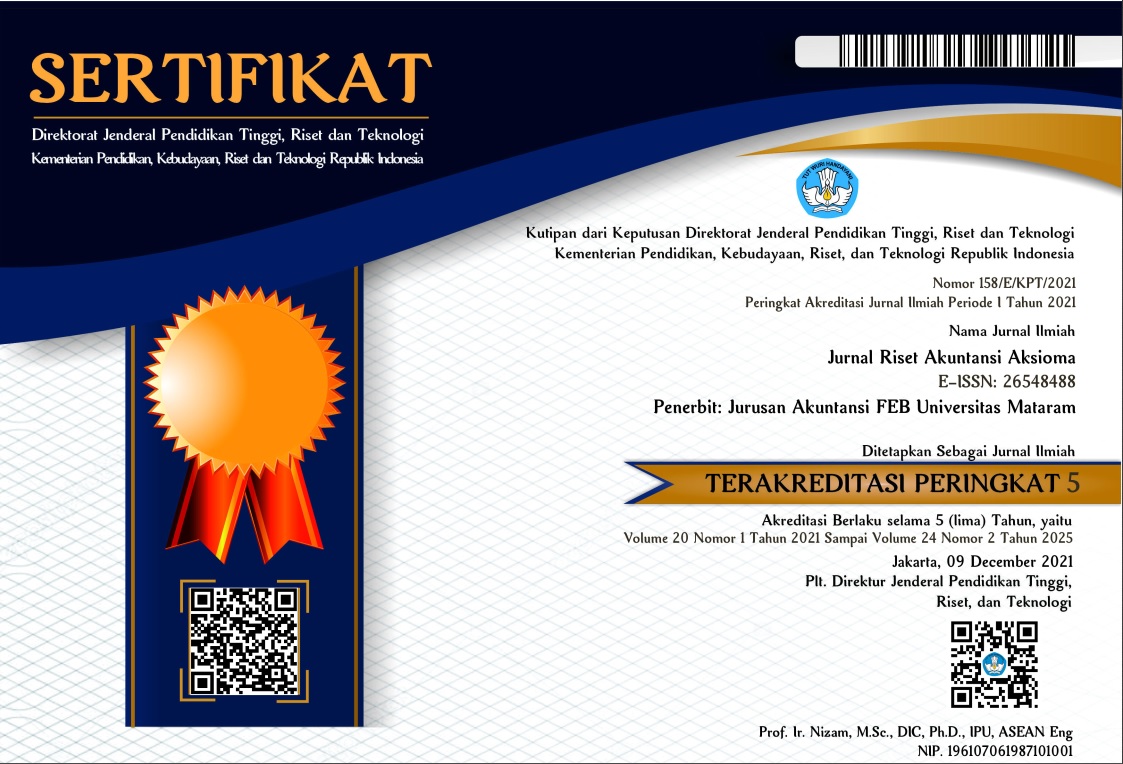AKUNTABILITAS KEUANGAN LEMBAGA FILANTROPI ISLAM DI INDONESIA
Abstract
Islamic Philanthropic Institutions must report the results of managing zakat, infaq, and alms to gain the trust of the community so that the potential for zakat, infaq, and alms collected is much greater because of the community's trust in these institutions. Therefore this study aims to determine the extent of the level of accountability in the financial transparency of the Islamic Philanthropic Institution in Indonesia as seen based on website data. This type of research is a descriptive study with a quantitative approach. The population in this study were 24 National Islamic Philanthropic Institutions that already have a Registered Certificate (SKT). Determination of the number of samples using the census method. The results of this study state that in terms of accessibility, the national Islamic philanthropy website is very accountable, meaning that the majority of Islamic Philanthropy has a website so that people can access information on Islamic Philanthropy financial statements and in terms of availability of financial reports, there are national Islamic philanthropic websites that are sufficiently accountable, are the statement of financial position and statement of changes in funds and some are less accountable, are statement of changes in managed assets and cash flow statement and there are those that are very less accountable, is notes to financial statements.
References
Athifah., dkk. (2018). Pengaruh akuntabilitas publik dan transparansi laporan keuangan terhadap kepercayaan donatur pada Yayasan PPPA Daarul Qur’an Nusantara . Jurnal Perisai (Islamic Banking And Finance Journal), Vol 2 (1), April 2018, 54-74 ISSN. 2503-3077
Donaldson dan Davis. (1991). Stewardship theory or agency theory: CEO governance and shareholder returns. Australian Journal Of Management,Vol.16, No.1.
Hanifah, Fika. (2017). Pengaruh kompetisi politik, indeks pembangunan manusia, dan leverage terhadap ketersediaan dan keteraksesan informasi keuangan daerah pada website resmi pemerintah daerah di Indonesia. Skripsi Universitas Negeri Semarang
Haryadi, B. (2010). Political economy of shariah accounting (membangun teori ekonomi politik akuntansi syariah). Malang: Pascasarjana Universitas Brawijaya.
Huda, Nurul, dkk. (2014). Akuntabilitas sebagai sebuah solusi pengelolaan wakaf. Jurnal Akuntansi Multiparadigma, Volume 5, Nomor 3, Desember 2014, Hlm. 485-497
Kusmiati, Mia. (2015). Membangun kesehatan organisasi institusi pendidikan dokter: sebuah transformasi menuju akuntabilitas social. MIMBAR, Vol. 31, No. 1, Juni, pp. 123-134.
Mulawarman, Aji Dedi. (2007). Menggagas neraca syari’ah berbasis maal: kontekstualisasi “kekayaan altruistik islami”. The 1st Accounting Conference. FE-UI Depok. 7-9 Nopember.
Nikmatuniayah & Marliyati. (2015). Akuntabilitas laporan keuangan lembaga amil zakat di kota Semarang. , Jurnal MIMBAR, Vol. 31, No. 2 (Desember, 2015): 485-494
Nurfaida,G. Destya. (2019). Transparansi dan akuntabilitas pengelolaan wakaf masjid agung kauman Semarang. Jurusan Ekonomi Islam Fakultas Ekonomi Dan Bisnis Islam, Universitas Islam Negeri Walisongo Semarang
Nurhasanah, Siti. (2018). Akuntabilitas laporan keuangan lembaga amil zakat dalam memaksimalkan potensi zakat. Akuntabilitas: Jurnal Ilmu Akuntansi Volume 11 (2), 2018: 327 - 348 P-ISSN: 1979-858X; E-ISSN: 2461-1190
Riduwan. (2013). Metode dan teknik menyusun tesis. Bandung: Alfabeta.
Sedarmayanti. (2013). Reformasi administrasi publik, reformasi birokrasi, dan kepemimpinan masa depan. Bandung: PT Refika Aditama.
Sugiyono. (2017). Metode penelitian kuantitatif, kualitatif, dan r&d. Bandung: Alfabeta.
Triyuwono, Iwan. (2002). “Konsep dasar teori akuntansi syari’ah”. Seminar Shari’ah Accounting Event 2002. KiAMI-FSI Senat Mahasiswa FEUI. 29 Oktober.
Triyuwono, Iwan. (2007). “Mengangkat „sing liyan‟ untuk formulasi nilai tambah syari‟ah. Disajikan dalam Simposium Nasional Akuntansi X Unhas, Makassar, 26-28 Juli 2007
Widyawati,E. Rosmana. (2019). Analisis akuntabilitas pengelolaan wakaf pada badan wakaf Al qur’an Surakarta, Skripsi. Jurusan Akuntansi Syariah Fakultas Ekonomi Dan Bisnis Islam Institut Agama Islam Negeri Surakarta




















